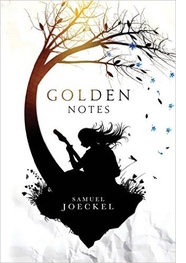SNL’s Shakespearean Moment
Like many, I was moved by Kate McKinnon’s unexpectedly profound cover of Leonard Cohen’s “Hallelujah” during last week’s episode of Saturday Night Live. As far as I know, the performance was unprecedented in SNL history: an opening “live from” skit that was thoroughly and purposefully unfunny.
 It
was never a secret that McKinnon was a Hillary supporter. McKinnon’s
lampoon, while not steering away from the email controversy and
career-politician baggage, occasionally came across as endearing and
sympathetic: more fun-loving roast than satire, a jester’s homage
to pantsuits and stiff cuffs. Of course, McKinnon had two very good
reasons to support Hillary: she’s a woman, and she’s gay.
It
was never a secret that McKinnon was a Hillary supporter. McKinnon’s
lampoon, while not steering away from the email controversy and
career-politician baggage, occasionally came across as endearing and
sympathetic: more fun-loving roast than satire, a jester’s homage
to pantsuits and stiff cuffs. Of course, McKinnon had two very good
reasons to support Hillary: she’s a woman, and she’s gay.
What made her performance so stirring and profound for me was the play of identification. Kate adopted the persona of Hillary but spoke for herself; Kate played Hillary playing Kate. McKinnon had done this before. In a skit weeks ago, Kate as “Hillary” strikes up a conversation with a bartender played by Hillary Clinton herself. “Hillary” tells Hillary that she regretted not getting on-board gay rights earlier. Hillary demurs: ‘You supported gay rights pretty early.’ To which “Hillary” insistently retorts, ‘No, it could have been earlier.’ McKinnon here is basically winking at the audience as she, once again, is Kate playing “Hillary” playing Kate. It’s a meta-dramatic moment; the skit lowers its comedic mask.
There’s something Shakespearean about this. In Twelfth Night the character of Fabian assesses the unlikely events of the plot—though of course he doesn’t see these events as a “plot”—and proclaims, “If this were play’d upon a stage now, I could condemn it as an improbable fiction.” Shakespeare here is speaking through his character and, like McKinnon, is winking at his audience.
Although the SNL parodies included these meta-dramatic moments in past skits, none compared to the performance last Saturday. The Kate-as-Hillary-as-Kate dynamic was much more transparent and direct. The breathtaking transition from artifice and drama to sincere, heartfelt emotion was a bold gamble that transformed a studio accustomed to the sound of laughter to one filled with tense quiet.
And then there’s the significance of the Cohen cover. Of course, Cohen had died just a few days earlier. McKinnon’s performance was a dirge, a eulogy both to a man and to the death of an ideal. Like many Cohen songs, “Hallelujah” is a sort of parable dealing in archetypes: joy, sadness, despair, hope. Consequently, McKinnon’s cover assumed heightened significance; the song became larger than itself.
The evocations of King David in the song’s lyrics were also poignant. Consider the parallels to the present moment: David the promising but flawed king, bearing upon his shoulders the hopes of Israel. McKinnon’s performance reached an emotional climax when she sang the lines that register David’s chastened and painful realization: “Love is not a victory march / It’s a cold and it’s a broken hallelujah.”
At the song’s conclusion, McKinnon looks into the camera and says, “I’m not giving up, and neither should you.” Is this Kate, “Hillary,” or both speaking? This is another Shakespeare moment, but this one from A Midsummer Night’s Dream. The character of Puck (otherwise known as Robin Goodfellow), a fairy, faces the audience and speaks directly to them: “Give me your hands, if we be friends, / And Robin shall restore amends.” Translation: Applaud if you liked our play. Is this Puck speaking? Or the actor who plays Puck? Or Shakespeare, the playwright himself? Whichever the case, the play reaches beyond itself.
Through the years, covers of “Hallelujah” have been both sublime and ridiculous. For those of us who share with Kate/“Hillary”/Hillary that sense of a broken hallelujah, it is as if the song was waiting for this performance, this one moment, coming just days after the death of its writer, to offer an affirmation of joy and sadness, hope and despair, disappointment and resolve, all bound together in the secret chord.